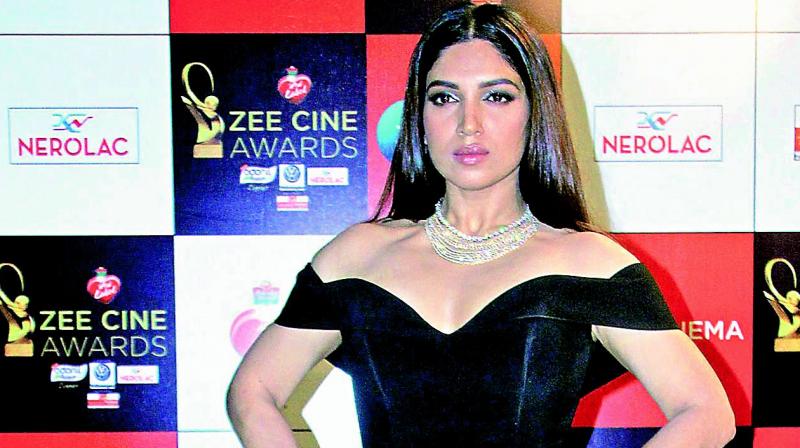Not ashamed of calling myself a star

After a sparkling debut in 2015 romantic comedy Dum Laga Ke Haisha, where she played a plus-sized bride trying to find love with a husband who refuses to accept her, her second film had her playing a feisty newlywed, who leaves her husband after discovering he doesn’t have a toilet in the house. She followed the success of Toilet: Ek Prem Katha with the comedy-drama Shubh Mangal
Saavdhan (2017), a satire about erectile dysfunction and Lust stories where she plays a maid, having an affair with her employer. The actress has always chosen to do cinema, which is out-of-the-box and continues to select interesting scripts. Now she is back yet again with a powerful role in Sonchiraiya opposite Sushant Singh Rajput. In a free-wheeling chat, the actor talks about her roles, the shift in cinema and her mother.
Excerpts from the interview:
Your films deal with casteism and status of women in our society. Where do you draw your inspiration from?
I have been fortunate to be around people that don’t believe in misogyny at the workplace or in my family. But of course, it does exist. I get to hear about it more because of the characters that I play on screen. When I research my characters, I get to know the ground realities. I might not have faced it personally but I have friends and know people who have faced sexual assaults and disparity on various levels because of their caste, creed and colour. It is sad but it is a sad reality of our county that needs to end.
You seem to be like a very mouldable actress in the showbiz
That’s a great compliment because I personally feel it has been a conscious choice to take up different roles. I feel there has been a switch in the power with the writers and that’s why we have good stories coming up. I am just a medium for the director to surpass the story. I don’t feel actors are above the makers and it’s a welcome change that has happened. I feel as an actor, you should be in a position to mould yourself into different characters and should have the ability to change. If I can’t do it then there is a problem and I hope I get to surprise my audience with everything that I do.
Do you get very conscious facing the cameras or you are the best version of yourself after they call action?
I love being an actor so much because as a person, I would be conscious about pimples and weight because I love vanity and I own up to it. I have been like that since I was a child but where my characters are concerned, they are such confident women that I love celebrating my flaws on screen. I think I am the most secure in front of the cameras and I don’t care about the pimples and double chin because of my characters.
What made you take up a film like Sonchiraiya ?
This film is set in the emergency period and is commenting on certain issues that are still very relevant in India, even after 42 years. It speaks about the caste divide in our society and the status of women in our country. As a progressive person, I think we have not moved very further ahead. The director has made ‘dark incidents’ watchable and relevant.
Your films including Dum Laga Ke Haisha, Shubh Mangal Saavdhan speak about various issues. Is there anyone you speak to before picking a subject?
My mum helps me a lot because our wavelength matches — we are on the same page. All my films have done well because all these films are entertaining because my growing up set up is highly responsible for making me who I am and for the choices that I make. Our parents have really empowered us and you are a product of what your parents are.
So now, do you consider yourself a star?
I consider myself a fortunate actor but I don’t think I am going to be ashamed or conscious about calling myself a star. I think people want to watch me in films and that’s why filmmakers want to work with me and tell stories.
We are going through a huge shift where the star system is kind of fading away. How are you enjoying this phase?
It’s high time because this is a medium where stories need to be told. I think, in-between, it had become about a personal growth not staying true to what your story needs to say. Specifically now, why we are going back to the heartland of India is because we have so much to say. We are such a diverse culture and we have gone through such a huge change and cinema is a very active part of it. It’s the most powerful medium and I feel privileged to be part of this change.

